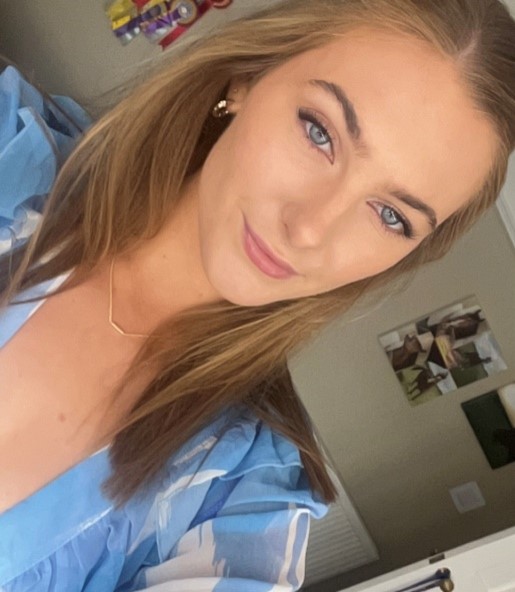Jorja’s Journey - From Bioveterinary Science to Molecular Medicine
Jorja Jackson-Oxley shares her journey into research and it all started with her supportive lecturers in the School of Natural Sciences. Little did she know that her dissertation would lead her to a PhD in Molecular Medicine and Complex Diseases.

Hi! I am Jorja, and I graduated from the University of Chester in 2023 with a First-Class BSc (Hons) degree in Bioveterinary Science.
I am now a PhD student at the University of Nottingham, investigating Diagnostic, Prognostic, and Therapeutic Advances in Canine Sarcomas. This research is in the same field as my research conducted during my MRes project.
How the School Helped Me Succeed
Throughout my degree, I valued the excellent support from lecturers, lab technicians and tutors. The course explored so many branches of science, which means that there is bound to be something you’ll enjoy. It allows you to get a great insight into different job opportunities for when you graduate.
When I was studying, there was also scope to move courses or modules. For example, I started on one module in my Third Year and decided I wanted to study one with a more clinical approach. The change was quick and hassle-free, due to a lack of timetable clashes, so it is always worth discussing with your lecturers what is possible. The staff are very supportive and can give career advice, such as searching for work experience (like they did for me, as I wanted more research/laboratory work).
Invaluable Practical Experience
At the end of my first year, I reached out to Veterinary Tissue Bank (VTB) to gain more practical experience. VTB specialise in stem cell therapy for clinical use for osteoarthritic dogs, as well as the generation of allografts for orthopaedic canine and feline surgeries. During my time there, I predominantly did cell culture, doing all the tasks from extracting the stem cells from adipose tissue to delivering them back to the clinics for injection into patients.
I worked at VTB during my second and third years, as well as during my placement module. My connections with the business allowed me to go to conferences and participate in collaborative studies with Robert Jones and Agnes Hunt Orthopaedic Hospital, investigating canine serum biomarkers.
A Dissertation That Sparked My Interests
When it came to picking dissertation topics, I had the opportunity to complete a project within Chester Medical School on ‘an in vitro investigation of the use of repurposed drugs to inhibit the growth of canine osteosarcoma cells’. The School of Natural Sciences supported me in this decision and helped me to pursue research in an area that sparked my interests.
Conducting Research in a Fascinating Area
After I had completed my degree at Chester, I knew I had enjoyed research and being in a laboratory environment from the practical sessions, my time at VTB, and my dissertation. There was a Master of Research degree at the University of Nottingham within the Vet School, which allowed you to work on a project within an area of your choice, provided that there was the correct support and resources available. I found a group that also conducts research on osteosarcoma, to whom I reached out and discussed whether they had any projects available within this area. After an in-person meeting, an introduction to the team, and some onboarding, I started my MRes project.
Due to my knowledge within the subject area, I applied for a PhD within the same group, expanding on the work I had already conducted and also exploring a different soft tissue tumour, hemangiosarcoma, in dogs.
I am now travelling to international research laboratories and meetings, and publishing scientific papers, whilst conducting research in a fascinating area.
Chester as a Place to Study
Chester is a friendly and safe city. At the University, there are a variety of sports opportunities, whether you want to participate socially or competitively, and there are great amenities onsite, including the gym, bar, shop and library.
Find Out How You Can Follow Jorja Into Bioveterinary Science
Visit our course page for more information about Bioveterinary Science, or why not attend one of our Open Days?